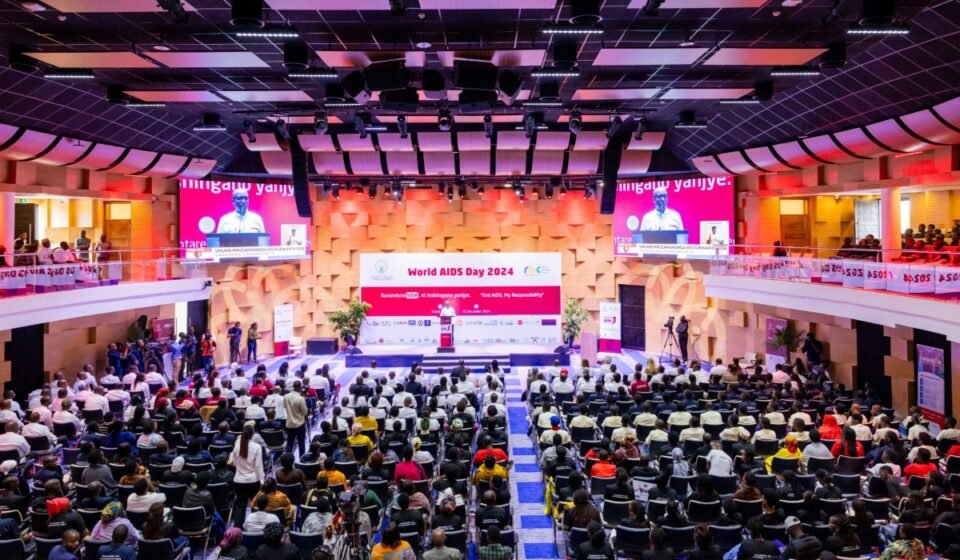On December 1, Rwanda joined the global community in observing World AIDS Day under the theme “End AIDS, My Responsibility.” This year’s theme emphasizes the shared role of individuals and communities in the fight against HIV/AIDS. Rwanda Ending HIV and Reducing Stigma
Significant Progress but Ongoing Challenges
Rwanda has achieved remarkable milestones in addressing the HIV epidemic. According to Dr. Vanessa Mupenzi, Director of HIV Epidemiology at the Rwanda Biomedical Centre (RBC), 95% of people living with HIV in the country know their status, 95% of those diagnosed are on antiretroviral therapy (ART), and 95% of those receiving treatment have achieved viral suppression. These numbers reflect Rwanda’s surpassing of the UNAIDS “Triple 95” targets, with 97% of people living with HIV now having access to life-saving ART.
Despite these successes, challenges remain. Dr. Mupenzi highlighted that HIV prevalence among people aged 15-49 stands at 2.7%, and about 0.5% of children under 15 are living with the virus. An estimated 230,000 people in Rwanda live with HIV, with the country reporting 3,200 new infections annually.
Addressing Stigma and Social Barriers
One of the persistent hurdles is HIV-related stigma, which continues to deter individuals, especially adolescents, sex workers, and men who have sex with men, from accessing tests, treatment, and support. While stigma has significantly declined from 60% in 2009 to 13% in 2020, Dr. Mupenzi noted that discrimination still exists in some communities and among younger populations influenced by risky behaviors often glamorized on social media.
Deo Mutambuka, Executive Secretary of the Rwanda Network of People Living with HIV, emphasized that stigma remains a key challenge in schools, workplaces, and healthcare settings. He pointed out that fear of discrimination often delays diagnosis and treatment, increasing the risk of transmission. He also called for more robust HIV education and advocacy, particularly for young people who are disproportionately affected.
Integrating Prevention and Health Education
This year’s national-level World AIDS Day event in Rubavu District highlighted an integrated approach to addressing public health challenges. In addition to focusing on HIV prevention, the event also tackled emerging infections like Mpox through combined health education initiatives.
Rwanda’s efforts in preventing mother-to-child HIV transmission have been especially noteworthy. Dr. Mupenzi reported that 99% of HIV-positive pregnant women receive treatment to protect their infants, a significant achievement on the continent. Additionally, voluntary medical circumcision coverage has risen to 56%, with higher rates among young men in Kigali.
Empowering Youth Through Education and Action
Mutambuka underscored the urgency of increasing support for comprehensive sexuality education, which is essential for equipping young people with the knowledge to make informed health decisions. He warned that reduced HIV education funding and the normalization of risky behaviors on social media have heightened youth vulnerability to HIV. Many young people remain undiagnosed, which not only delays treatment but also increases the risk of transmission.
Renewed Commitment to Ending AIDS by 2030
As part of its goal to end AIDS by 2030, Rwanda is doubling down on efforts to ensure universal access to HIV services. This includes expanding testing, integrating HIV care with other public health initiatives, and eliminating stigma and discrimination.
Mutambuka emphasized that Rwanda’s success demonstrates the power of political will, strong health systems, and community engagement. However, he stressed that achieving the 2030 target requires sustained action from all sectors of society.
“Rwanda Ending HIV is a collective responsibility,” he concluded, urging everyone to play their part in this crucial fight.

